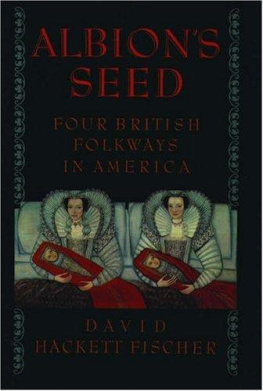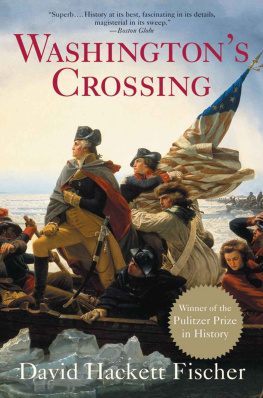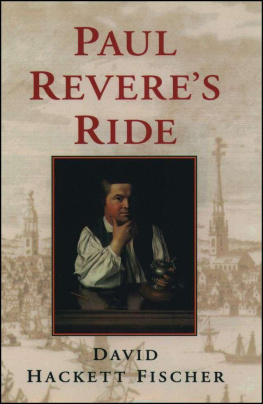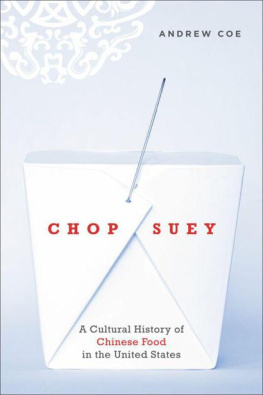Albions Seed
AMERICA
A CULTURAL HISTORY
VOLUME I: ALBIONS SEED
VOLUME II: AMERICAN PLANTATIONS
ALBIONS SEED
FOUR BRITISH FOLKWAYS IN AMERICA
BY
DAVID HACKETT FISCHER

Oxford University Press
Oxford New York
Athens Auckland Bangkok Bombay
Calcutta Cape Town Dar es Salaam Delhi
Florence Hong Kong Istanbul Karachi
Kuala Lumpur Madras Madrid Melbourne
Mexico City Nairobi Paris Singapore
Taipei Tokyo Toronto
and associated companies in
Berlin Ibadan
Copyright 1989 by David Hackett Fischer
First published in 1989 by Oxford University Press, Inc.,
198 Madison Avenue, New York, New York 10016
First issued as an Oxford University Press paperback, 1991
Oxford is a registered trademark of Oxford University Press
All rights reserved. No part of this publication may be reproduced,
stored in a retrieval system, or transmitted, in any form or by any means,
electronic, mechanical, photocopying, recording, or otherwise,
without the prior permission of Oxford University Press.
Library of Congress Cataloging-in-Publication Data
Fischer, David Hackett, 1935
Albions seed: four British folkways in America/
David Hackett Fischer.
p. cm. (America, a cultural history; v. 1)
Bibliography: p. Includes index.
ISBN-13 978-0-19-506905-1
1. United StatesCivilizationTo 1783.
2. United StatesCivilizationEnglish influences.
I. Title. II. Series: Fischer, David Hackett, 1935
America, a cultural history, v. 1.
E169.1.F539 vol. 1 [E162] 973 s-dc20 [973] 89-16069 CIP
23 25 27 29 30 28 26 24
Printed in the United States of America
on acid-free paper
For Robert and Patricia Blake
PREFACE

An Idea of Cultural History
History is culturally ordered, differently so in different societies The converse is also true: cultural schemes are historically ordered.
Marshall Sahlins, 1985
THIS BOOK is the first in a series, which will hopefully comprise a cultural history of the United States. It is cultural in an anthropological rather than an aesthetic sensea history of American folkways as they have changed through time.
Each volume (five are now in draft) centers on a major problem in American historiography. The first volume, Albions Seed, is about the problem of cultural origins. The second volume, American Plantations, studies the problem of culture and environment in the colonial era. The third volume examines the coming of independence as a cultural movement. Volume four takes up the problem of cultural change in the early republic, and volume five is about the Civil War as a cultural conflict. Other volumes will follow if the author is allowed to complete them.
This project has grown from an intellectual event that happened in the 1960sa revolution in the writing of history, very much like the thought-revolutions described in Thomas Kuhns essays on the history of science, and Michael Foucaults studies of social thought. Three generations ago, there was an established paradigm or episteme of historical knowledge. A writer had only to call his book a history in order to announce what sort of work it was, for history books were very much the same. History was about the past. It was a narrative disciplinea story-telling art. The stories that it told were about the organization of power and authority. Not all historians wrote political history, but most were interested in the politics of the subjects they studied. Labor historians wrote about labor leaders; historians of eduction studied school systems and the men who ran them; historians of women wrote about suffrage leaders and reform elites. Large masses of less eminent people also passed through the history books, or loitered in the wings like armies of anonymous extras on a Hippodrome stage. But the leading actors were small and highly individuated power-elites.
Historians studied these people through documentary sources. The results were organized as narratives and presented in the form of testimonysometimes with specific citations, but for the most part historians testified to their readers, I have steeped myself in the sources, and here is what I believe to have happened, and they were believed, for this was a time when scholars were gentlemen, and a gentleman was as good as his word.
All of this activity created a coherent and plausible idea of history, which was at once a body of knowledge about the past and also a way of knowing it. Its masters were the great narrative historians such as Macaulay, Michelet, Ranke and Parkman. The last of this breed in America were Allan Nevins and Samuel Eliot Morison, who are both in their graves.
Early in the twentieth century, this paradigm of history began to come apart. Its ethical framework disintegrated. Suddenly, there were many new interests and problems that no longer seemed to fit. Anomalies were found; young scholars were promoted primarily for finding them. For two generations, historians became hunters after the anomalous fact. Each of their successes was a blow against the old synthesis, which was soon reduced to something like a ruin.
Some scholars struggled to repair it. Others attempted to replace it with a new synthesis. In the United States, the work of Turner, Beard, Parrington, Hofstadter, Boorstin and Hartz might be understood as a series of highly tentative paradigm sketches. But nobody could put the pieces together again. This was the period (1935-60) when historical relativism came into fashion, and every convention of the American Historical Association became an organized expression of professional Angst.
Then, in the decade of the 1960s, something new began to happen. Young scholars in Europe and America were inspired by the French school of the Annales to invent a new kind of history which differed from the old paradigm in all of the characteristics mentioned above. This new history was not really about the past at all, but about changewith past and present in a mutual perspective. It was not a story-telling but a problem-solving discipline. Its problematiques were about change and continuity in the acts and thoughts of ordinary peoplepeople in the midst of others; people in society. The goal of this new social history was nothing less than an histoire totale of the human experience. To that end, the new historians drew upon many types of evidence: documents, statistics, physical artifacts, iconographic materials and much more. They also presented their findings in a new waynot as testimony but as argument. An historian was required not only to make true statements but also to demonstrate their truthfulness by rigorous methods of logic and empiricism. This epistemic revolution was the most radical innovation of the new history. It was also the most difficult for older scholars to understand.
In its early years, the new social history claimed to be not merely a new subdiscipline of history but the discipline itself in a new form. It promised to become a major synthesizing discipline in the human scienceseven the synthesizing discipline. Unhappily, these high goals were not reached. The new social history succeeded in building an institutional base, and also in exploring many new fields of knowledge. But in Fernand Braudels words, it was overwhelmed by its own success. Instead of becoming a synthesizing discipline, it disintegrated into many special fieldswomens history, labor history, environmental history, the history of aging, the history of child abuse, and even gay historyin which the work became increasingly shrill and polemical. Moreover, too many important subjects were excluded from the new historypolitics, events, individuals, even ideasand too many problems were diminished by materialist explanations and modernization models. By the 1980s the new social history had lost much of its intellectual momentum, and most of its conceptual range. It had also lost touch with the larger purposes that had called it into being.
Next page







 An Idea of Cultural History
An Idea of Cultural History